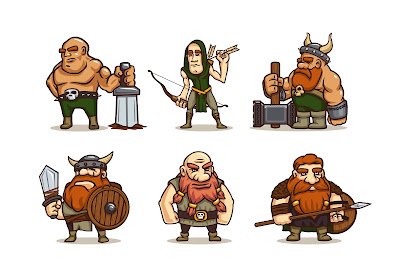History of the Vikings in Iceland
History of the Vikings started in the region of Scandinavia, or what is now Norway, Sweden, Finland, and Denmark. Their reputation for raiding and plundering is legendary, but the adventurous spirit if Vikings was not limited to marauding. Vikings were also explorers, sailing east as far as the Volga River in Russia, south as far as Constantinople, and west as far as Iceland and Canada.
Discovery and Settlement by Vikings
There is some evidence that Native Americans had hunted and fished on Iceland’s shores prior to Viking discovery. It found in the Runes Vikings. However, there were no permanent settlements. Icelandic tradition says the island was discovered in the mid-ninth century by Naddoddr, a settler of the Faroe Islands off the northern coast of Scotland. However, the first permanent settlement was not thought to have been founded until 874 C.E. by the Norwegian chieftain Ingólfur Arnarson. Over the next sixty years, Iceland became completely settled primarily by a mix of Norse, Irish, and Scottish inhabitants.
Governance and Expansion
The Viking chieftains of Iceland came together in 930 C.E. to form the Althing, a parliamentary system. Once a year the chieftains met to discuss the law and settle disputes. For the next two hundred years, Iceland enjoyed relative peace and prosperity. With a governing body, relative isolation, and few enemies, the population of Iceland grew and even began colonizing Greenland and the eastern shores of what is now Canada.
Even with its distance from Europe, Iceland was still tied to the mainland culturally and commercially. With the rise and eventual dominance of Christianity on the continent, including Scandinavia, the Icelanders were under increasing pressure to convert to the Christian faith and eventually the entire population was declared Christian.
End of Viking Independence in Iceland
The decision to convert to Christianity was one step away from independence. By the middle of the eleventh century the Viking Age had ended in Scandinavia as well as Iceland. Norway, Sweden, and Denmark were firmly established as Christian kingdoms and the adventurous Vikings had either been absorbed into a local society or had established societies of their own such as Iceland.
Iceland went through a period of civil conflict during the eleventh and twelfth centuries as various prominent families fought for dominance. The strife, and the sovereignty of the Viking chieftains, ended with the signing of the Old Covenant, establishing Iceland as a vassal state of Norway. This effectively ended the history of the Vikings in Iceland.
Label: History


0 Komentar:
Posting Komentar
Berlangganan Posting Komentar [Atom]
<< Beranda